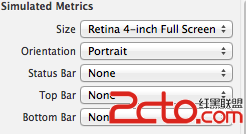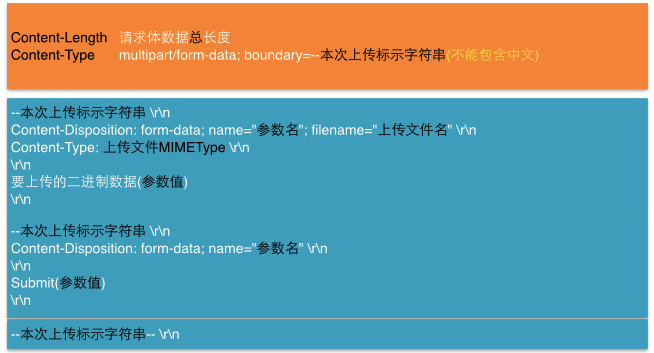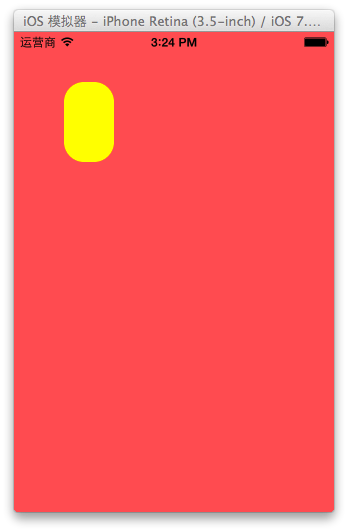舉例講授iOS中延遲加載和上拉刷新/下拉加載的完成
lazy懶加載(延遲加載)UITableView
舉個例子,當我們在用網易消息App時,看著那末多的消息,其實不是一切的都是我們感興致的,有的時刻我們只是很快的滑過,想要疾速的略過不愛好的內容,然則只需滑動經由了,圖片就開端加載了,如許用戶體驗就不太好,並且糟蹋內存.
這個時刻,我們便可以應用lazy加載技巧,當界面滑動或許滑動加速的時刻,都不停止圖片加載,只要當用戶不再滑動而且加速後果停滯的時刻,才停止加載.
剛開端我異步加載圖片應用SDWebImage來做,最初實驗的時刻湧現了重用bug,由於固然SDWebImage完成了異步加載緩存,當加載完圖片後再要求會直接加載緩存中的圖片,留意留意留意,症結的來了,假如是lazy加載,滑動進程中是不停止收集要求的,cell上的圖片就會產生重用,當你停上去能停止收集要求的時刻,才會變回到以後Cell應有的圖片,年夜概1-2秒的延遲吧(不算延遲,就是沒有停止要求,也不是沒有緩存的成績).怎樣處理呢?這個時刻我們就要在Model對象中界說個一個UIImage的屬性,異步下載圖片後,用曾經緩存在沙盒中的圖片途徑給它賦值,如許,才cellForRowAtIndexPath辦法中,斷定這個UIImage對象能否為空,若為空,就停止收集要求,不為空,就直接將它賦值給cell的imageView對象,如許就可以很好的處理圖片長久重用成績.
@上面我的代碼用的是本身寫的異步加載緩存類,SDWebImage的加載圖片的懶加載,會在前面的章節給出.(為何分歧呢,由於SDWebImage我之前應用重來不關懷它將圖片存儲在沙盒中的名字和途徑,然則要完成懶加載的話,必定要獲得圖片途徑,所以在找SDWebImage若何存儲圖片途徑上花了點時光)
@model類
#import <Foundation/Foundation.h>
@interface NewsItem : NSObject
@property (nonatomic,copy) NSString * newsTitle;
@property (nonatomic,copy) NSString * newsPicUrl;
@property (nonatomic,retain) UIImage * newsPic; // 存儲每一個消息本身的image對象
- (id)initWithDictionary:(NSDictionary *)dic;
// 處置解析
+ (NSMutableArray *)handleData:(NSData *)data;
@end
#import "NewsItem.h"
#import "ImageDownloader.h"
@implementation NewsItem
- (void)dealloc
{
self.newsTitle = nil;
self.newsPicUrl = nil;
self.newsPic = nil;
[super dealloc];
}
- (id)initWithDictionary:(NSDictionary *)dic
{
self = [super init];
if (self) {
self.newsTitle = [dic objectForKey:@"title"];
self.newsPicUrl = [dic objectForKey:@"picUrl"];
//從當地沙盒加載圖象
ImageDownloader * downloader = [[[ImageDownloader alloc] init] autorelease];
self.newsPic = [downloader loadLocalImage:_newsPicUrl];
}
return self;
}
+ (NSMutableArray *)handleData:(NSData *)data;
{
//解析數據
NSError * error = nil;
NSDictionary * dic = [NSJSONSerialization JSONObjectWithData:data options:NSJSONReadingMutableContainers error:&error];
NSMutableArray * originalArray = [dic objectForKey:@"news"];
//封裝數據對象
NSMutableArray * resultArray = [NSMutableArray array];
for (int i=0 ;i<[originalArray count]; i++) {
NSDictionary * newsDic = [originalArray objectAtIndex:i];
NewsItem * item = [[NewsItem alloc] initWithDictionary:newsDic];
[resultArray addObject:item];
[item release];
}
return resultArray;
}
@end
@圖片下載類
#import <Foundation/Foundation.h>
@class NewsItem;
@interface ImageDownloader : NSObject
@property (nonatomic,copy) NSString * imageUrl;
@property (nonatomic,retain) NewsItem * newsItem; //下載圖象所屬的消息
//圖象下載完成後,應用block完成回調
@property (nonatomic,copy) void (^completionHandler)(void);
//開端下載圖象
- (void)startDownloadImage:(NSString *)imageUrl;
//從當地加載圖象
- (UIImage *)loadLocalImage:(NSString *)imageUrl;
@end
#import "ImageDownloader.h"
#import "NewsItem.h"
@implementation ImageDownloader
- (void)dealloc
{
self.imageUrl = nil;
Block_release(_completionHandler);
[super dealloc];
}
#pragma mark - 異步加載
- (void)startDownloadImage:(NSString *)imageUrl
{
self.imageUrl = imageUrl;
// 先斷定當地沙盒能否曾經存在圖象,存在直接獲得,不存在再下載,下載後保留
// 存在沙盒的Caches的子文件夾DownloadImages中
UIImage * image = [self loadLocalImage:imageUrl];
if (image == nil) {
// 沙盒中沒有,下載
// 異步下載,分派在法式過程缺省發生的並發隊列
dispatch_async(dispatch_get_global_queue(DISPATCH_QUEUE_PRIORITY_DEFAULT, 0), ^{
// 多線程中下載圖象
NSData * imageData = [NSData dataWithContentsOfURL:[NSURL URLWithString:imageUrl]];
// 緩存圖片
[imageData writeToFile:[self imageFilePath:imageUrl] atomically:YES];
// 回到主線程完成UI設置
dispatch_async(dispatch_get_main_queue(), ^{
//將下載的圖象,存入newsItem對象中
UIImage * image = [UIImage imageWithData:imageData];
self.newsItem.newsPic = image;
//應用block完成回調,告訴圖象下載完成
if (_completionHandler) {
_completionHandler();
}
});
});
}
}
#pragma mark - 加載當地圖象
- (UIImage *)loadLocalImage:(NSString *)imageUrl
{
self.imageUrl = imageUrl;
// 獲得圖象途徑
NSString * filePath = [self imageFilePath:self.imageUrl];
UIImage * image = [UIImage imageWithContentsOfFile:filePath];
if (image != nil) {
return image;
}
return nil;
}
#pragma mark - 獲得圖象途徑
- (NSString *)imageFilePath:(NSString *)imageUrl
{
// 獲得caches文件夾途徑
NSString * cachesPath = [NSSearchPathForDirectoriesInDomains(NSCachesDirectory, NSUserDomainMask, YES) lastObject];
// 創立DownloadImages文件夾
NSString * downloadImagesPath = [cachesPath stringByAppendingPathComponent:@"DownloadImages"];
NSFileManager * fileManager = [NSFileManager defaultManager];
if (![fileManager fileExistsAtPath:downloadImagesPath]) {
[fileManager createDirectoryAtPath:downloadImagesPath withIntermediateDirectories:YES attributes:nil error:nil];
}
#pragma mark 拼接圖象文件在沙盒中的途徑,由於圖象URL有"/",要在存入前調換失落,隨便用"_"取代
NSString * imageName = [imageUrl stringByReplacingOccurrencesOfString:@"/" withString:@"_"];
NSString * imageFilePath = [downloadImagesPath stringByAppendingPathComponent:imageName];
return imageFilePath;
}
@end
@這裡只給出症結代碼,收集要求,數據處置,自界說cell自行處理
#pragma mark - Table view data source
- (NSInteger)numberOfSectionsInTableView:(UITableView *)tableView
{
// Return the number of sections.
return 1;
}
- (NSInteger)tableView:(UITableView *)tableView numberOfRowsInSection:(NSInteger)section
{
// Return the number of rows in the section.
if (_dataArray.count == 0) {
return 10;
}
return [_dataArray count];
}
- (UITableViewCell *)tableView:(UITableView *)tableView cellForRowAtIndexPath:(NSIndexPath *)indexPath
{
static NSString *cellIdentifier = @"Cell";
NewsListCell *cell = [tableView dequeueReusableCellWithIdentifier:cellIdentifier ];
if (!cell) {
cell = [[[NewsListCell alloc] initWithStyle:UITableViewCellStyleDefault reuseIdentifier:cellIdentifier] autorelease];
}
NewsItem * item = [_dataArray objectAtIndex:indexPath.row];
cell.titleLabel.text = item.newsTitle;
//斷定將要展現的消息有沒有圖象
if (item.newsPic == nil) {
//沒有圖象下載
cell.picImageView.image = nil;
NSLog(@"dragging = %d,decelerating = %d",self.tableView.dragging,self.tableView.decelerating);
// ??履行的機會與次數成績
if (self.tableView.dragging == NO && self.tableView.decelerating == NO) {
[self startPicDownload:item forIndexPath:indexPath];
}
}else{
//有圖象直接展現
NSLog(@"1111");
cell.picImageView.image = item.newsPic;
}
cell.titleLabel.text = [NSString stringWithFormat:@"indexPath.row = %ld",indexPath.row];
return cell;
}
- (CGFloat)tableView:(UITableView *)tableView heightForRowAtIndexPath:(NSIndexPath *)indexPath
{
return [NewsListCell cellHeight];
}
//開端下載圖象
- (void)startPicDownload:(NewsItem *)item forIndexPath:(NSIndexPath *)indexPath
{
//創立圖象下載器
ImageDownloader * downloader = [[ImageDownloader alloc] init];
//下載器要下載哪一個消息的圖象,下載完成後,消息保留圖象
downloader.newsItem = item;
//傳入下載完成後的回調函數
[downloader setCompletionHandler:^{
//下載完成後要履行的回調部門,block的完成
//依據indexPath獲得cell對象,並加載圖象
#pragma mark cellForRowAtIndexPath-->沒看到過
NewsListCell * cell = (NewsListCell *)[self.tableView cellForRowAtIndexPath:indexPath];
cell.picImageView.image = downloader.newsItem.newsPic;
}];
//開端下載
[downloader startDownloadImage:item.newsPicUrl];
[downloader release];
}
- (void)loadImagesForOnscreenRows
{
#pragma mark indexPathsForVisibleRows-->沒看到過
//獲得tableview正在Window上顯示的cell,加載這些cell上圖象。經由過程indexPath可以獲得該行上須要展現的cell對象
NSArray * visibleCells = [self.tableView indexPathsForVisibleRows];
for (NSIndexPath * indexPath in visibleCells) {
NewsItem * item = [_dataArray objectAtIndex:indexPath.row];
if (item.newsPic == nil) {
//假如消息還沒有下載圖象,開端下載
[self startPicDownload:item forIndexPath:indexPath];
}
}
}
#pragma mark - 延遲加載症結
//tableView停滯拖拽,停滯轉動
- (void)scrollViewDidEndDragging:(UIScrollView *)scrollView willDecelerate:(BOOL)decelerate
{
//假如tableview停滯轉動,開端加載圖象
if (!decelerate) {
[self loadImagesForOnscreenRows];
}
NSLog(@"%s__%d__|%d",__FUNCTION__,__LINE__,decelerate);
}
- (void)scrollViewDidEndDecelerating:(UIScrollView *)scrollView
{
//假如tableview停滯轉動,開端加載圖象
[self loadImagesForOnscreenRows];
}
下拉刷新和上拉加載的道理
許多App中,消息或許展現類都存鄙人拉刷新和上拉加載的後果,網上供給了完成這類後果的第三方類(概況請見MJRefresh和EGOTableViewPullRefresh),用起來很便利,然則空閒之余,我們可以思慮下,這類後果完成的道理是甚麼,我之前說過,只需是動畫都是哄人的,只需不是硬件成績年夜部門後果都能在體系UI的基本上做出來.
上面是症結代碼剖析:
// 下拉刷新的道理
- (void)scrollViewWillBeginDecelerating:(UIScrollView *)scrollView
{
if (scrollView.contentOffset.y < - 100) {
[UIView animateWithDuration:1.0 animations:^{
// frame產生偏移,間隔頂部150的間隔(可自行設定)
self.tableView.contentInset = UIEdgeInsetsMake(150.0f, 0.0f, 0.0f, 0.0f);
} completion:^(BOOL finished) {
/**
* 提議收集要求,要求刷新數據
*/
}];
}
}
// 上拉加載的道理
- (void)scrollViewDidEndDragging:(UIScrollView *)scrollView willDecelerate:(BOOL)decelerate
{
NSLog(@"%f",scrollView.contentOffset.y);
NSLog(@"%f",scrollView.frame.size.height);
NSLog(@"%f",scrollView.contentSize.height);
/**
* 症結-->
* scrollView一開端其實不存在偏移量,然則會設定contentSize的年夜小,所以contentSize.height永久都邑比contentOffset.y高一個手機屏幕的
* 高度;上拉加載的後果就是每次滑動究竟部時,再往上拉的時刻要求更多,誰人時刻發生的偏移量,就可以讓contentOffset.y + 手機屏幕尺寸嵬峨於這
* 個轉動視圖的contentSize.height
*/
if (scrollView.contentOffset.y + scrollView.frame.size.height >= scrollView.contentSize.height) {
NSLog(@"%d %s",__LINE__,__FUNCTION__);
[UIView commitAnimations];
[UIView animateWithDuration:1.0 animations:^{
// frame產生的偏移量,間隔底部往上進步60(可自行設定)
self.tableView.contentInset = UIEdgeInsetsMake(0, 0, 60, 0);
} completion:^(BOOL finished) {
/**
* 提議收集要求,要求加載更多半據
* 然後在數據要求回來的時刻,將contentInset改成(0,0,0,0)
*/
}];
}
}
【舉例講授iOS中延遲加載和上拉刷新/下拉加載的完成】的相關資料介紹到這裡,希望對您有所幫助! 提示:不會對讀者因本文所帶來的任何損失負責。如果您支持就請把本站添加至收藏夾哦!
- 圖文講授若何處理App的iOS 7頂部狀況欄適配成績
- 實例講授iOS中的UIPageViewController翻頁視圖掌握器
- 實例講授iOS中的CATransition轉場動畫應用
- 舉例講授iOS運用開辟中hitTest觸摸事宜的編寫辦法
- 舉例講授設計形式中的原型形式在iOS運用開辟中的感化
- 實例講授iOS運用開辟中UIPickerView轉動選擇欄的用法
- 舉例講授iOS運用開辟中對設計形式中的戰略形式的應用
- 舉例講授Objective-C中@property屬性的用法
- 實例講授設計形式中的敕令形式在iOS App開辟中的應用
- 實例講授若何在iOS運用開辟中應用設計形式中的署理形式
- 實例講授iOS運用的設計形式開辟中的Visitor拜訪者形式
- iOS開辟中完成一個簡略的圖片閱讀器的實例講授
- 講授iOS開辟中UITableView列表設計的根本要點
- 實例講授iOS運用開辟中應用UITableView創立自界說表格
- 簡略講授iOS運用開辟中的MD5加密的相干應用




